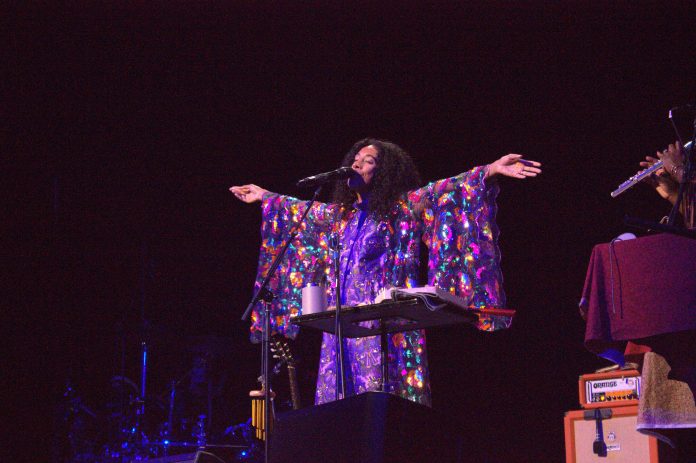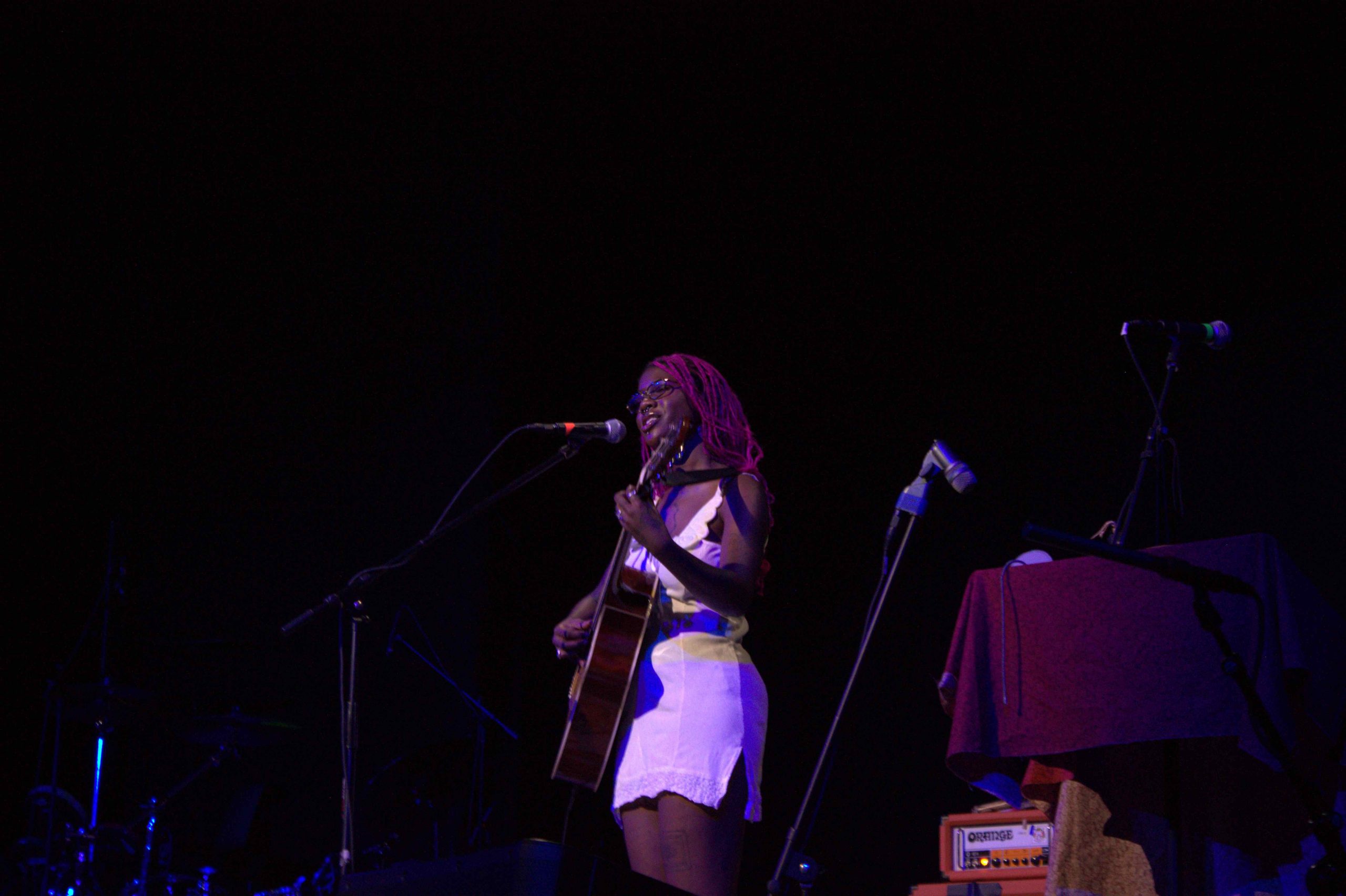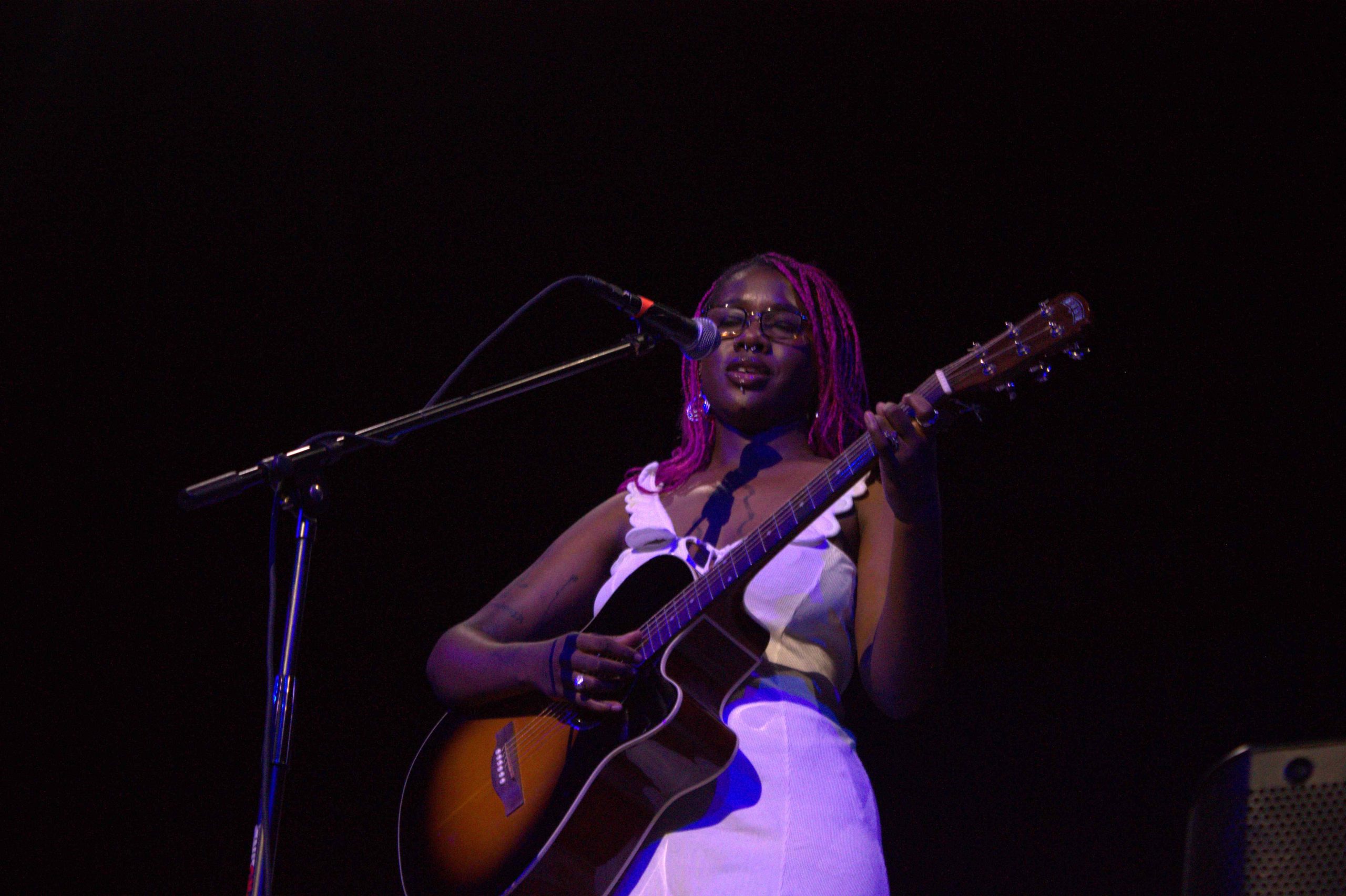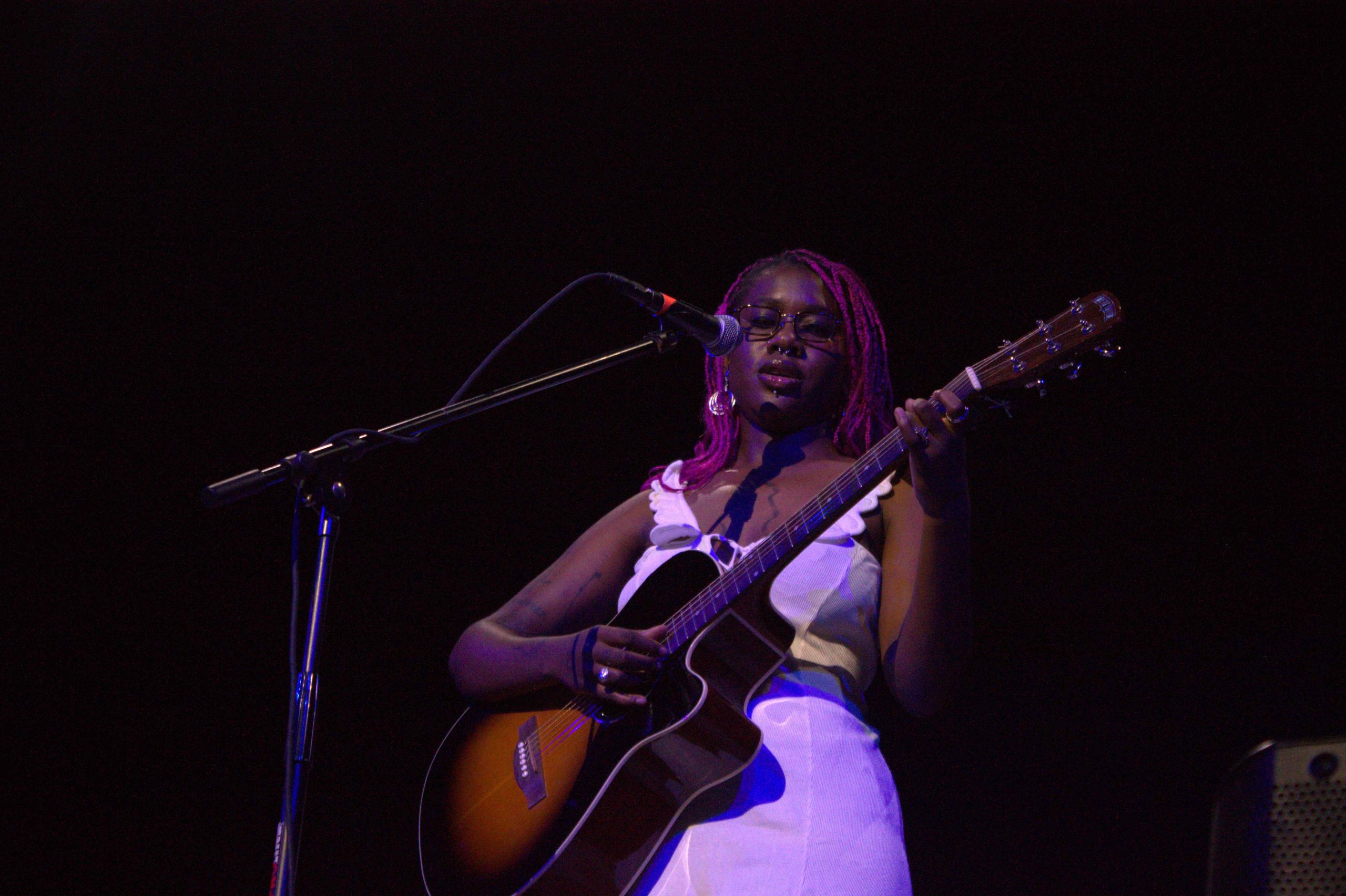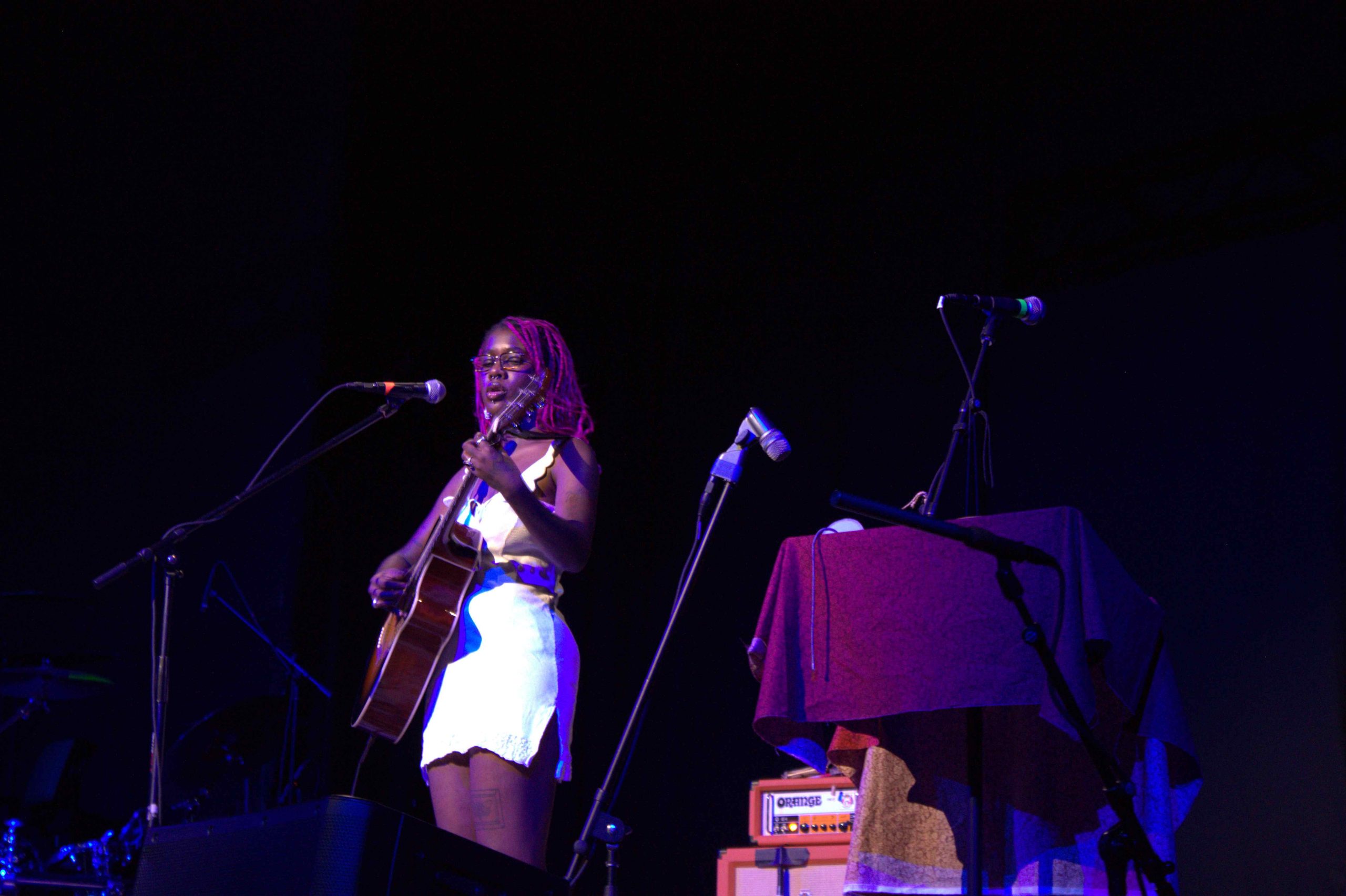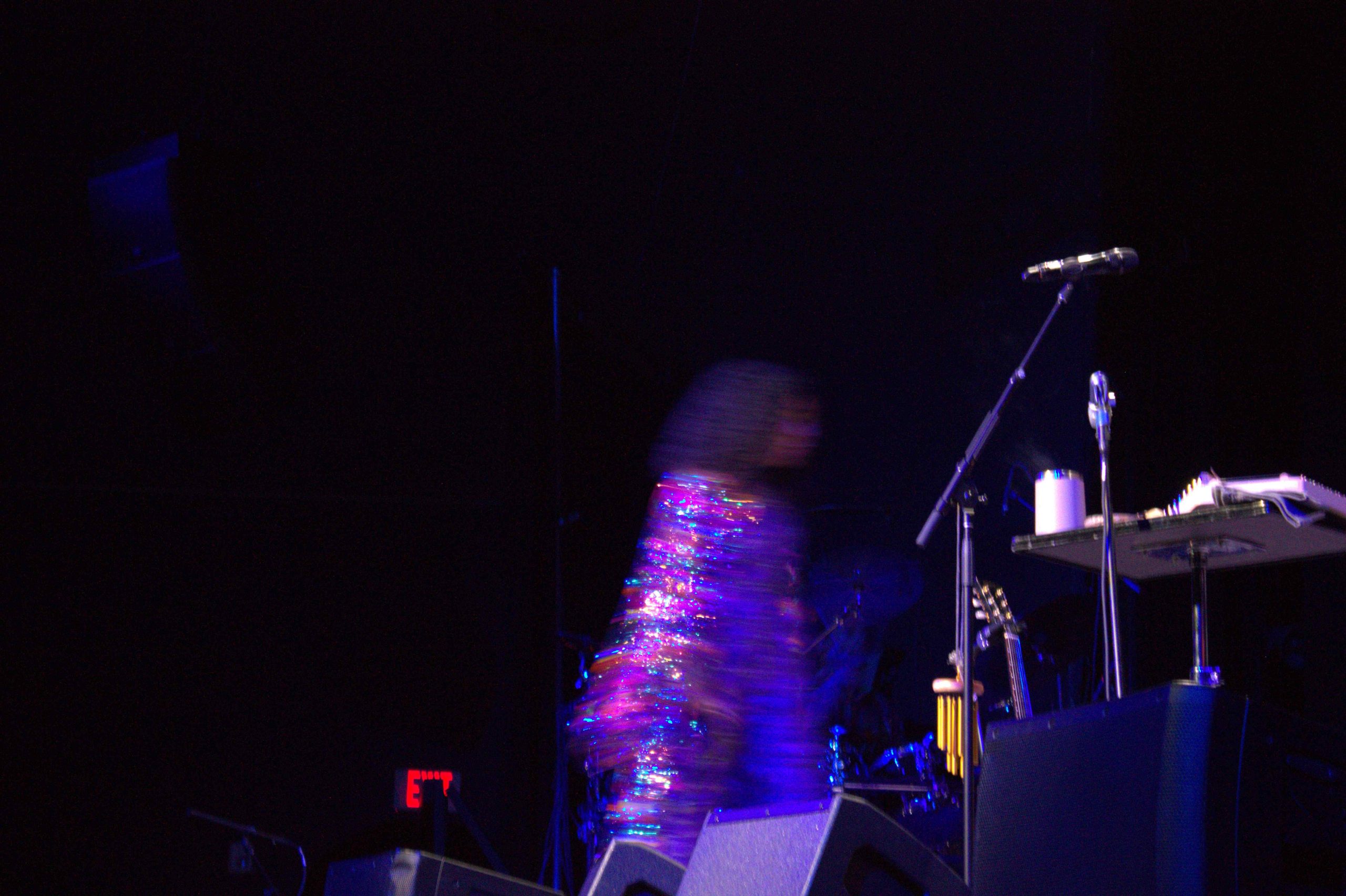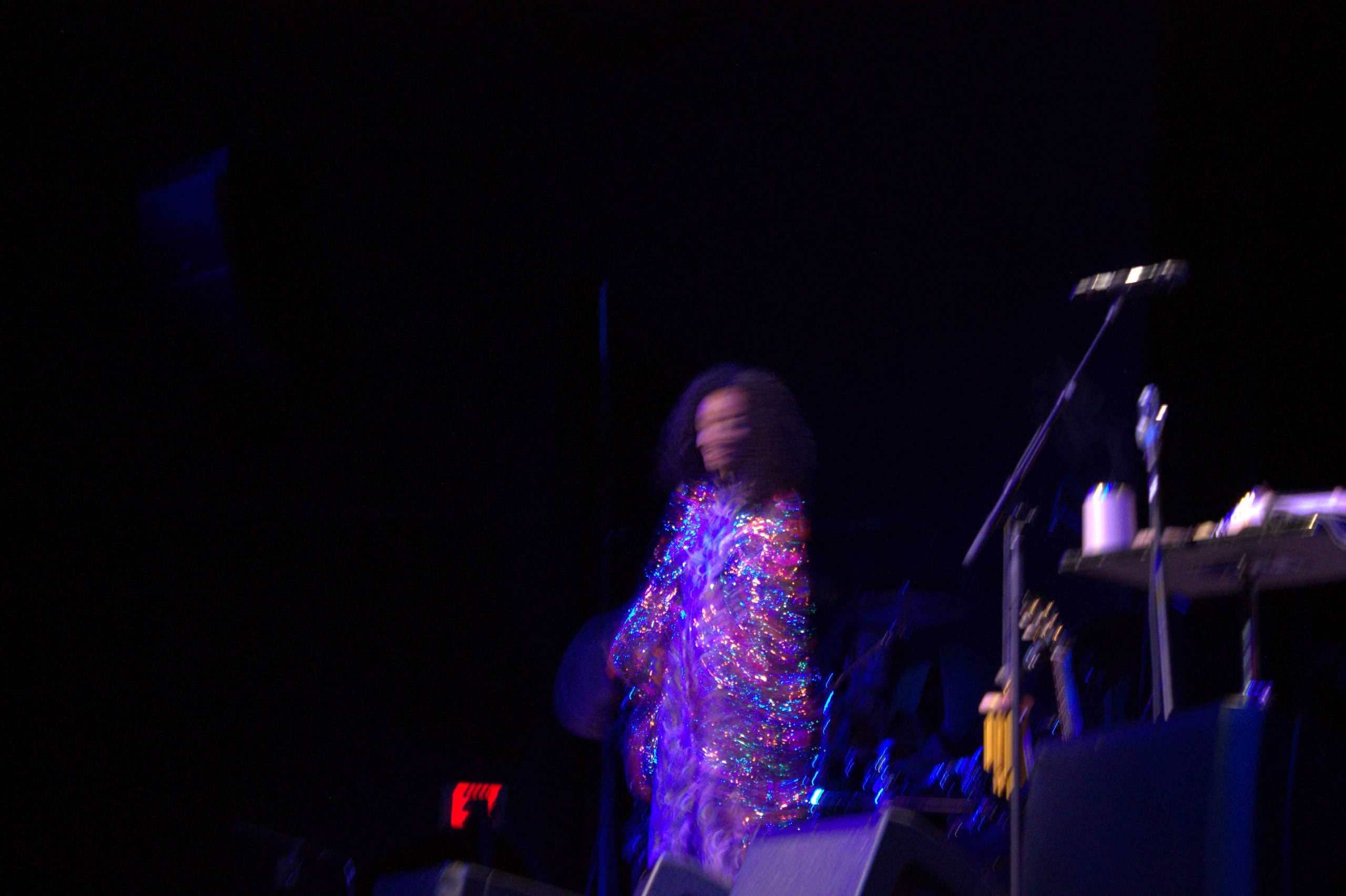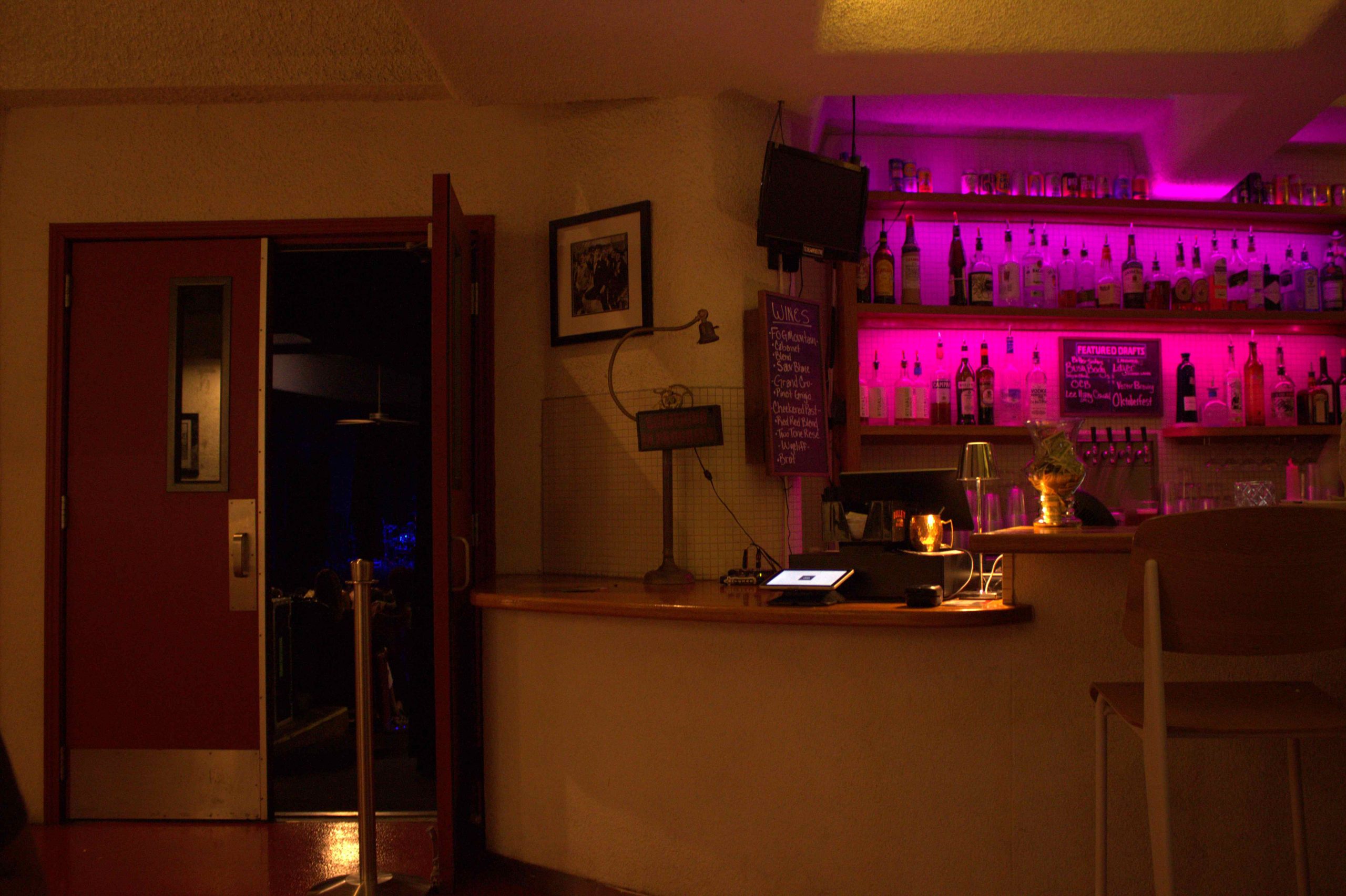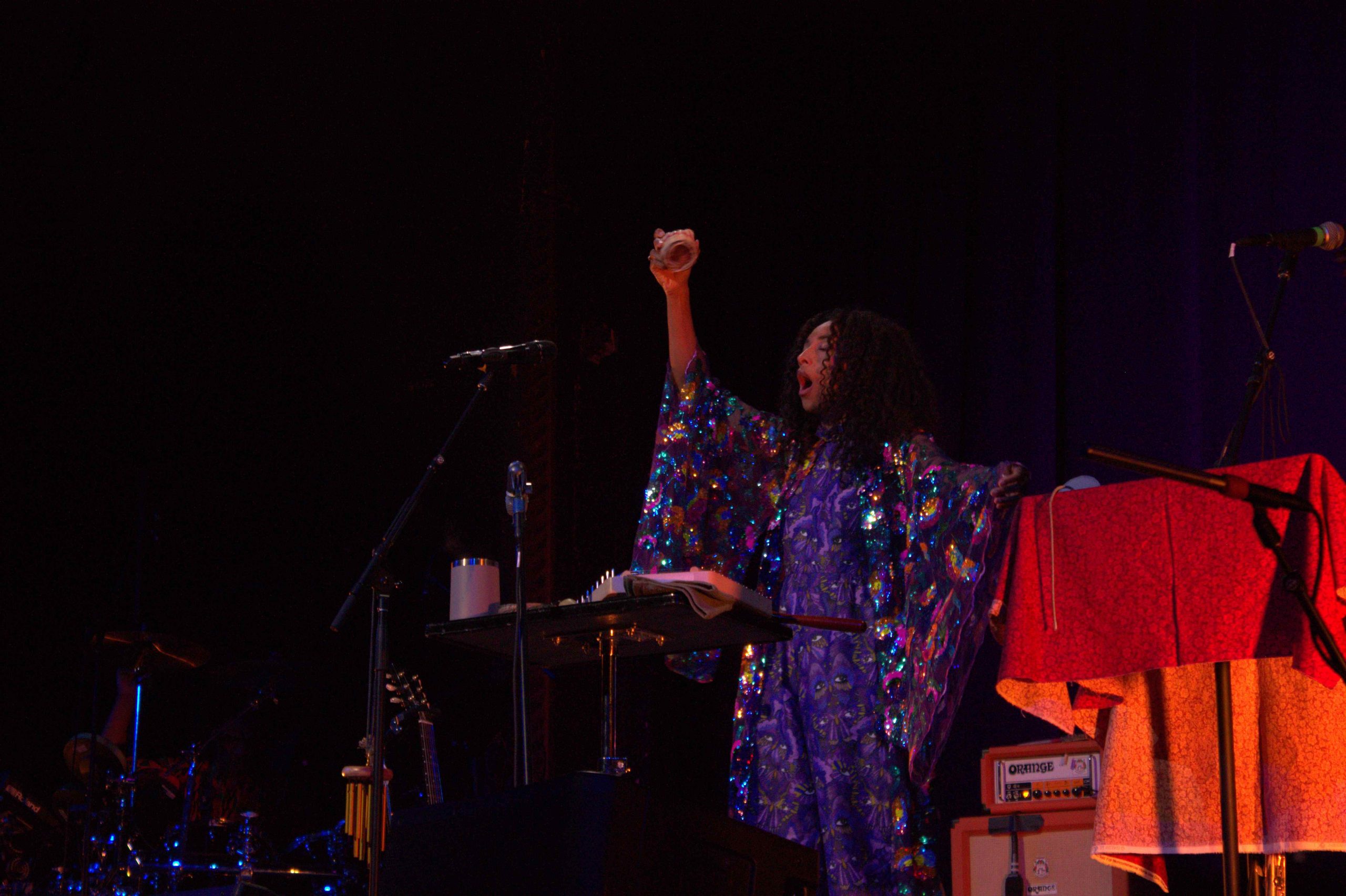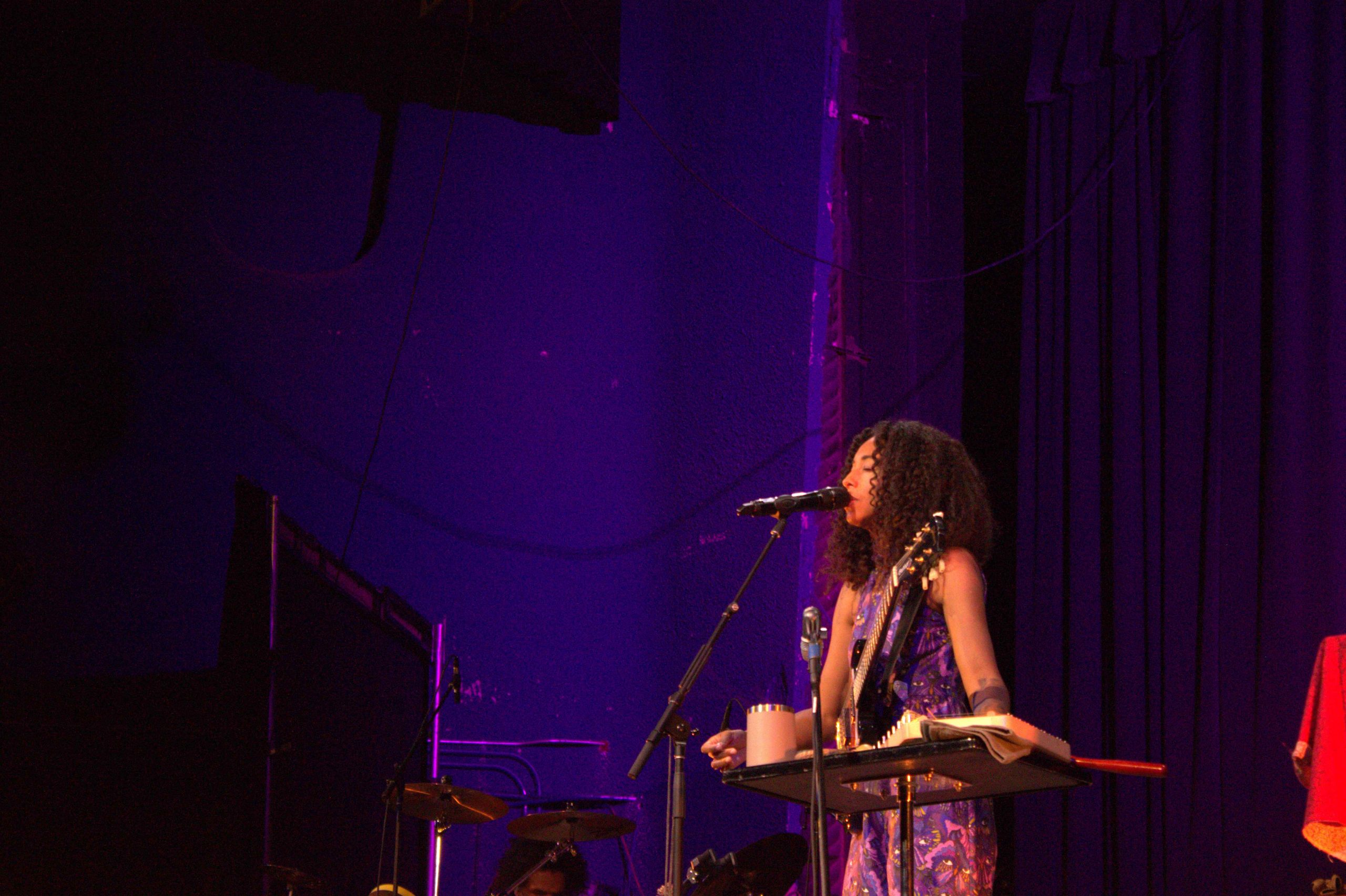On October 3rd, an ascendant force arrived in Dallas. The two-time Grammy Award winner, Three-time BRIT award nominee, creative force behind transformative songs like “Put Your Records On” Corinne Bailey Rae. The singer-songwriter arrived at the Texas Theater to perform selections from her self-produced, world-bending fourth album, Black Rainbows. The album, released on September 15th, experiments with contemporary jazz, distorted garage rock vocals, and futuristic R&B sounds. She was supported by folk singer-songwriter, and 2019 National Youth Poet Laureate, Kara Jackson.
Upon arrival, I found my seat and prepared to hear the melodic, reflective and at times, melancholic compositions characteristic of Kara Jackson. Right at 8:00pm, Jackson appeared, guitar in hand, gazing out at the audience. She began performing songs from her recently released debut album Why Does The Earth Give Us People to Love?. After receiving raucous bouts of applause, Jackson smiled to herself and thanked the audience. She introduced herself and made an endearing admission to the audience. The 23-year-old grew up listening to Corinne Bailey Rae, namely her seminal debut album responsible for songs such as “Like a Star,” “Put Your Records On,” and “Trouble Sleeping.” This brought a smile to my face, as I also listened to the album while growing up and kept a CD copy of it in my car with me. It also provided a musical moment of clarity. Both Jackson and Bailey Rae are known for their heart-rending, poetic musings over acoustic chords and piano arrangements. Their vulnerability and proximity to human emotion, as well as their desire to sit with difficult emotions, such as grief, sadness and anger and inspect them is their shared superpower. There were moments of levity and humor, however. Jackson joked about her song “therapy,” stating that it, “was not about mental health,” then launching into the first lyric– “he wants therapy.” Afterwards, the Chicago native shared a personal anecdote on her song “crush,” written aptly about romantic crushes. Jackson shared that she wrote the song hoping it would win over a romantic interest, even sharing it with her friends in a Cupid-adjacent gesture. However, in an ironic twist, she remained single while her friends entered into relationships. Kara Jackson’s ability to joke between songs about life, relationships and tragedy, molding the collective emotions experienced by the audience was masterful, and has likely turned many hundreds of new fans into her direction. Jackson’s debut album, Why Does The Earth Give Us People To Love?, is out now on all streaming platforms.
Then, a collective hush fell over the crowd. A purple and silver-clothed figure emerged from stage left. Bells began to chime, soft piano notes rolled into the hall and the lights dimmed. Corinne Bailey Rae had made her arrival. She began to perfume the room with incense, while her supporting band played various ambient instruments to facilitate calm and tranquility across the theater. Bailey Rae then graciously provided the creative impetus for her album: a serendipitous visit to the Stony Island Arts Bank of Chicago, where she was struck by artist Theaster Gates’ moving exhibition on Black history, an archive of Blackness in material culture over the years. The opening chords to “He Will Follow You With His Eyes,” played, a sultry, downtempo piece written to imitate Essence magazine copy à la 1960s. The song starts with romantic advice on how to win a man, from beauty products to how to apply perfume, to how to chemically straighten natural hair to look your best. The inclusion of these lyrics point to the Eurocentric beauty standards pushed on women at the time, especially on the young black women that Essence magazine was geared towards. However, the song is not without a twist— halfway through Bailey Rae repeats the lyrics, “I’ll be smoldering in my plum red lipstick /
My black hair kinking / My black skin gleaming / My plum red lipstick.” Certainly a very powerful adage to contrast the songwriting of the first half. Between this song and others, Bailey Rae emphasizes throughout the concert that it is equally important to preserve Black history, including racialized artifacts, pieces from slavery and other difficult truths, as it is to uphold Black joy and provide hope for the future in the face of racism. The next song, “Peach Velvet Sky” played. It is dedicated to Harriet Jacobs, a Black woman who escaped her slave captors by living in a small hut on the plantation. Bailey Rae makes gestures of looking through a peephole, to commemorate Jacobs’ difficult life trapped in the hut and forced to watch her children grow up through a small hole, too afraid to move. The sadness and weight of this story is quickly flipped to the exhilaration and fierceness of “New York City Transit Queen.” As Corinne pulls out her black electric guitar, she reflects on the life of Audrey Smaltz, the 17-year-old winner of Miss New York Transit in 1954, whose crowning photo was on display in the Theaster Gates exhibition. Corinne Bailey Rae played more selections from Black Rainbows, and then all too soon, it was time to go. Or so we thought. The British singer-songwriter returns to the stage with a sheepish grin and an acoustic guitar. She sits down. The Texas Theater fell deathly silent. Bailey Rae smiles. The opening chords to “Put Your Records On,” play and cheers erupt. A sea of hands sway in unison, and the Dallas crowd sings every lyric back to Bailey Rae. She leaves with the conclusion of another track from her debut album, “Like A Star, “a beautiful close to the concert, and a full-circle moment for long-time listeners.
I also sat down with Corinne Bailey Rae and fellow staff member Brie Haynes after the concert in an interview you can find here.


